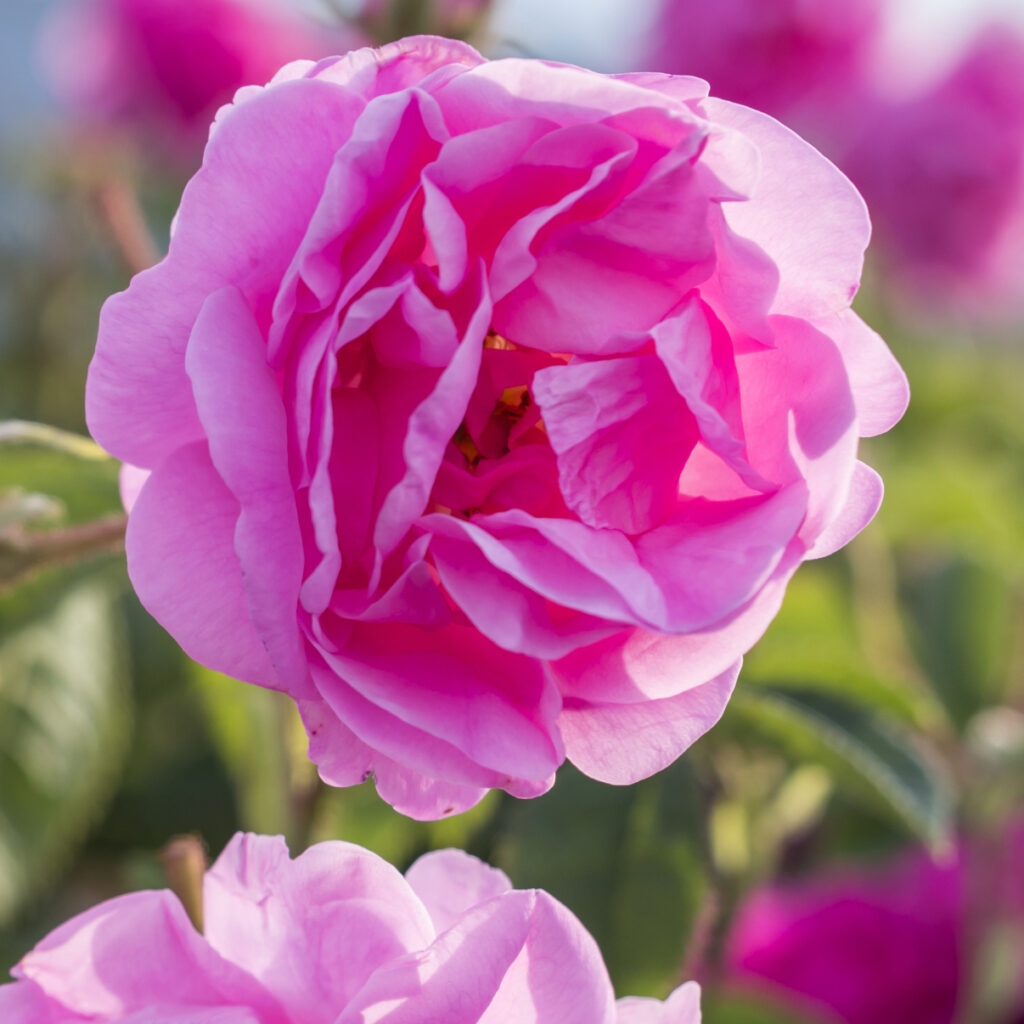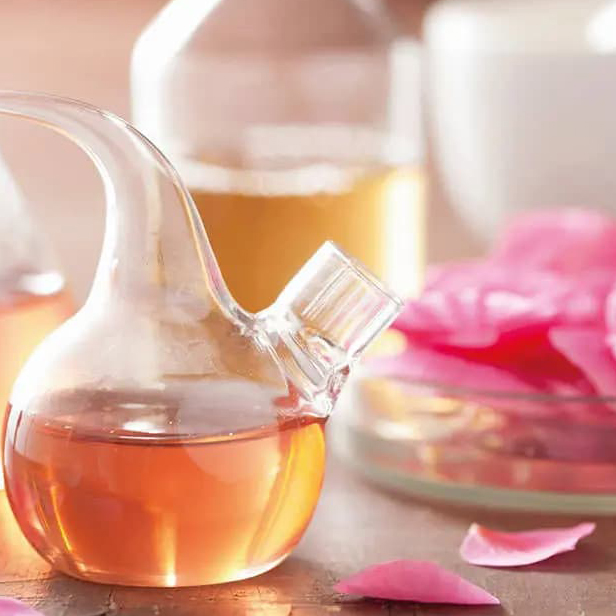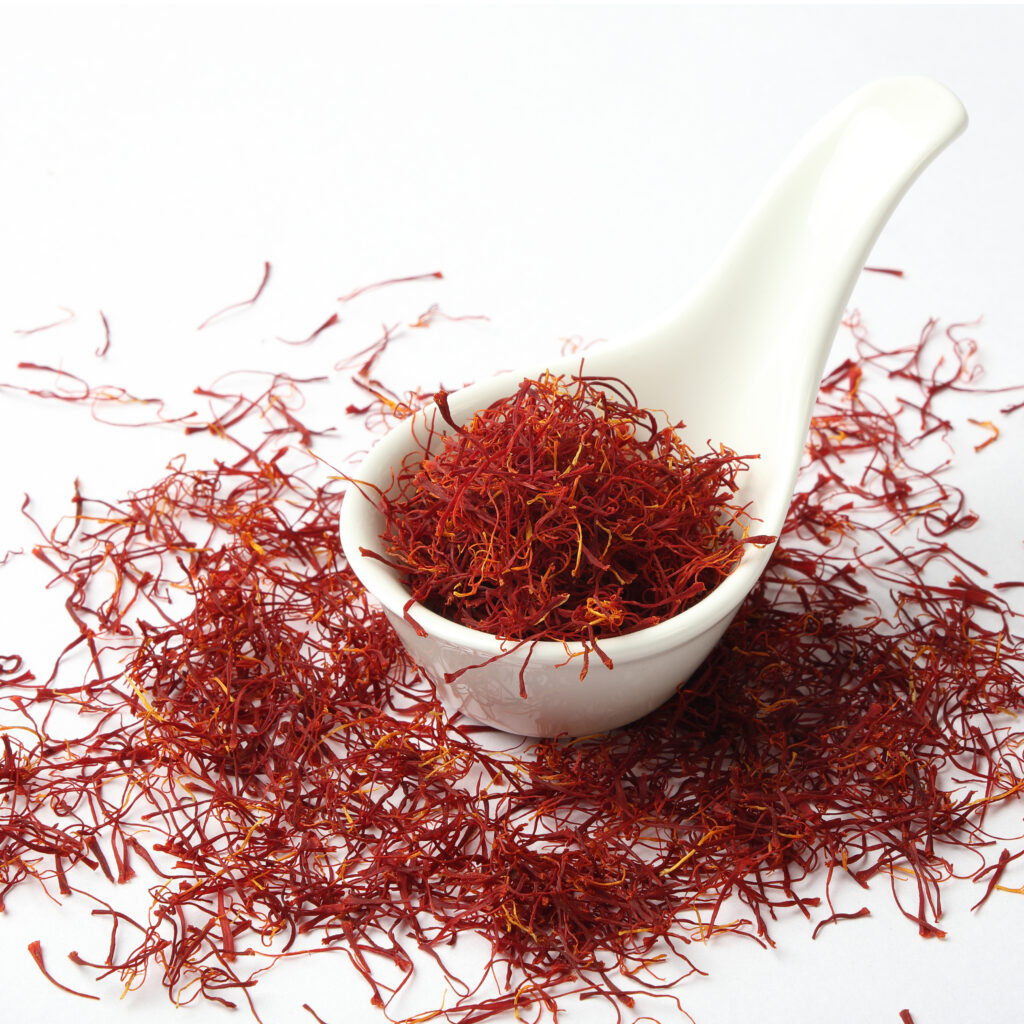The Damask rose (Rosa × damascena) is a highly fragrant, historic variety of rose, celebrated for its beauty and use in perfumes and essential oils. It is one of the most important roses in the production of rose oil (also known as attar of roses) and rose water. The Damask rose is believed to have originated in the Middle East and is named after the city of Damascus in Syria, where it was cultivated in ancient times.
Key Characteristics:
- Appearance: Damask roses are typically pink or light red in color, with full, densely packed blooms that have a classic, romantic look. They are often more delicate in appearance compared to modern hybrid roses.
- Fragrance: The scent of the Damask rose is world-renowned, known for being rich, deep, and sweet. It’s one of the primary varieties used in the fragrance industry because of its potent and long-lasting aroma.
- Growth: Damask roses are typically medium-sized shrubs, growing to about 3-6 feet tall. They have thorny stems, greyish-green foliage, and bloom primarily in spring or early summer, though some varieties bloom twice a year (repeat-blooming).
Varieties of Damask Rose:
- Summer Damask (Rosa × damascena var. trigintipetala): Known for its once-a-year bloom in late spring to early summer, it is the most common variety used for rose oil production.
- Autumn Damask (Rosa × damascena var. semperflorens): This variety can bloom in both summer and autumn, offering a second, smaller flush of flowers later in the year.
Uses of Damask Rose:
- Perfume and Rose Oil: The essential oil extracted from the petals is highly valued in perfumery. It takes vast quantities of petals to produce even a small amount of rose oil, making it a precious and expensive commodity.
- Rose Water: Made by distilling rose petals, rose water is widely used in cosmetics, skincare, and cooking. It has soothing and moisturizing properties, making it a popular ingredient in facial toners and creams.
- Culinary: Rose water and rose petals are commonly used in Middle Eastern, Indian, and Mediterranean cuisines. They flavor desserts like Turkish delight, baklava, and syrups, as well as beverages like rose tea and sherbets.
- Medicinal: Damask rose has been used in traditional medicine for its anti-inflammatory, antibacterial, and antioxidant properties. Rose oil is sometimes used to soothe skin irritation and to calm the mind in aromatherapy.
Growing Damask Roses:
- Climate: Damask roses thrive in temperate to slightly cooler climates. They require full sun for the best growth and blooming.
- Soil: Well-draining soil with plenty of organic matter is ideal. These roses prefer slightly acidic to neutral soil.
- Watering: Regular watering is necessary, especially in dry conditions, but avoid waterlogging the roots. They prefer consistent moisture.
- Pruning: Pruning after the first bloom can help promote healthy growth and encourage the plant to focus energy on producing more flowers in the next season.
Cultural Significance:
The Damask rose has been cultivated for over a thousand years and has deep cultural ties, especially in the Middle East, Persia (modern-day Iran), and parts of Europe. It is often associated with love, beauty, and luxury. In Iran, for example, festivals celebrate the harvest of Damask roses and the production of rose water.



